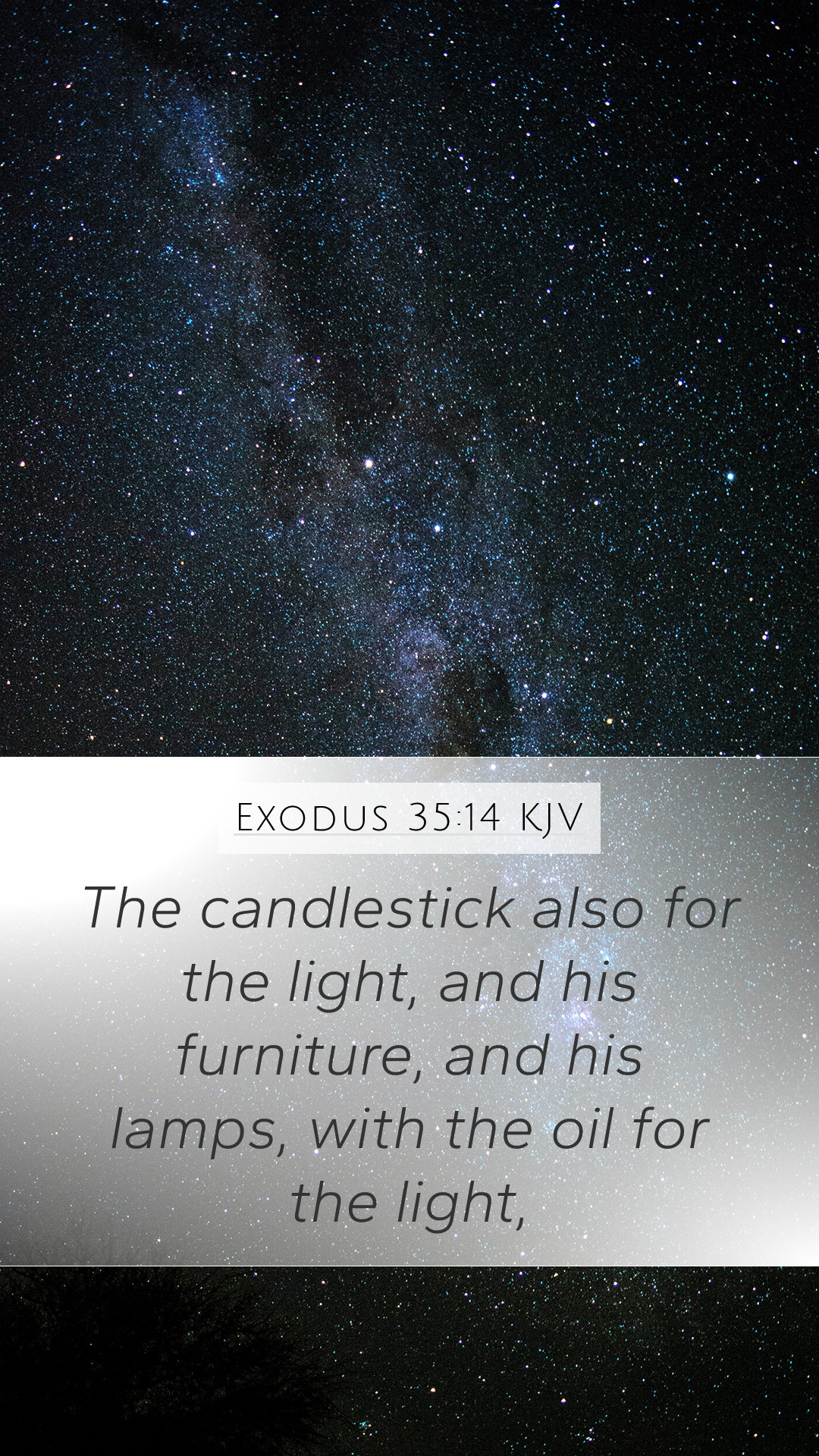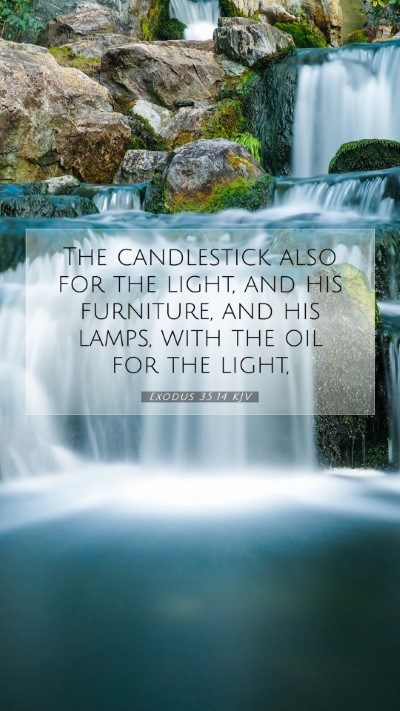Bible Verse Commentary: Exodus 35:14
Exodus 35:14 states: "The candlestick also for the light, and his furniture, and his lamps, and the oil for the light." This verse is a segment from the instructions given to the Israelites regarding the construction of the tabernacle and its sacred artifacts.
Overview
This scripture highlights specific items necessary for worship in the tabernacle, particularly focusing on the candlestick, which symbolizes divine light and guidance among the people. Candles or lamps have great significance in biblical texts, representing knowledge, truth, and holiness.
Interpretations and Meanings
-
Symbolism of Light: The candlestick (or menorah) is a profound symbol in the Bible, representing the presence of God and His guidance. As Matthew Henry notes, the light signifies God’s favor and the illumination He brings to the hearts of believers.
-
Materials and Offerings: Albert Barnes elaborates on the significance of the materials used: they represent the dedication of the Israelites towards worshipping God through elaborate offerings and resources. The specifics of the offerings reflect the seriousness and sensibility with which the community approached divine service.
-
Role of Oil: Adam Clarke mentions the importance of the oil which was used to fuel the lamps. Oil is often associated with the Holy Spirit in Biblical texts. Thus, the continuous lighting of the lamps signifies the ongoing need for spiritual nourishment and illumination in the life of believers.
Comprehensive Insights
The instruction provided in this verse sets the stage for understanding the role of sacred objects in worship. The candlestick not only served a practical purpose by providing light but also had deep spiritual implications. It represents the need for believers to be enlightened by God’s word and filled with His Spirit as they walk in faith.
Application in Daily Life
Understanding Exodus 35:14 allows contemporary believers to reflect on how they can carry that divine light into their lives. Just as the Israelites needed physical light in the tabernacle, being filled with the Holy Spirit is essential for modern-day believers as they navigate life's darkness.
Cross References
- Leviticus 24:2: Discusses the command to bring pure olive oil for the lamps, emphasizing the importance of maintaining spiritual brightness.
- Matthew 5:14-16: Jesus calls His followers the light of the world, reflecting the importance of being a beacon of hope and truth.
- Revelation 1:12-13: Mentions the seven lamps of fire which are symbolic of the presence of God among His people.
Conclusion
In summary, Exodus 35:14 serves as a crucial component of the narrative surrounding the worship of God by the Israelites. Through an understanding of its context and symbolism, believers today can draw parallels to their lives, seeking to be filled with the light of Christ that shines brightly in the world. This verse not only highlights the importance of the physical objects of worship but also encourages a deeper spiritual significance—to live in the light and presence of God daily.


